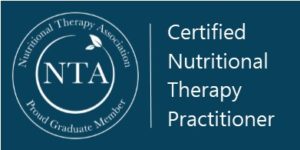Email blast from The Weston A. Price Foundation. Weston A. Price Foundation is a nonprofit, tax-exempt nutrition education foundation. Read our mission statement. . . Become a member and receive our lively and informative quarterly journal. Click here for a message from Sally Fallon Morell. Read our Dietary Guidelines here.
 The Legal Defense Fund has filed a motion with Judge Bennett asking him to amend his judgment with respect to the buyers club agent and the dairy farmer.
The Legal Defense Fund has filed a motion with Judge Bennett asking him to amend his judgment with respect to the buyers club agent and the dairy farmer.
Even though Judge Bennett dismissed the case, up to this point the lawsuit has accomplished several things:
(1) FDA is on public record promising that it will not take action against individual consumers crossing state lines to obtain raw milk. “Citizens can now purchase raw milk in any state, take it back to their state of residence and consume it without fear of any reprisal from FDA,” said Gary Cox, General Counsel for the Legal Defense Fund.
(2) Americans now know FDA’s views on food freedom. In the course of the lawsuit, FDA made the following assertions:
– “There is no absolute right to consume or feed children any particular food.”
– There is no fundamental right to one’s “own bodily and physical health.”
– People “do not have a fundamental right to obtain any food they wish.”
Farm-to-Consumer Legal Defense Fund, Pete Kennedy explains, “It is clear now that if people want their right to eat the foods of their choice to be respected, FDA must be reined in.”
(3) FDA was forced to give its interpretation of how the agency would apply the law to an agent for consumers crossing state lines to obtain raw milk and to a farmer knowingly selling to out-of-state consumers and their agents.
The judge held that all plaintiffs lack standing to pursue the case since there was no “threat of injury in fact.” Bennett found that “the FDA has made abundantly clear that it has not and does not intend to enforce the regulations against any of the plaintiffs.”
“We are disappointed that the court did not recognize how FDA is using the regulation to intimidate both farmers and consumers who are simply trying to have access to raw milk,” stated Pete Kennedy, president of the Farm-to-Consumer Legal Defense Fund. “While FDA has not brought an enforcement action against individual consumers, it has acted to enforce the regulation against several farmers and has inspected people’s private homes using this regulation.”
In regard to consumer plaintiffs, the opinion noted a November 1, 2011 FDA press release stating,
“With respect to the interstate sale and distribution of raw milk, the FDA has never taken, nor does it intend to take, enforcement action against an individual who purchased and transported raw milk across state lines solely for his or her own personal consumption.” The agency issued the press release in response to a rally held by the activist group, the Raw Milk Freedom Riders, at FDA headquarters in Silver Springs, Maryland. Earlier, FDA made a similar statement in answer to questions posed by the judge.
The buyers club agent in the case, Eric Wagoner, had over 100 gallons of raw milk embargoed by the Georgia Department of Agriculture in October 2009; shortly after, Wagoner and other members of the buyers club were forced to dump the milk in the presence of an FDA agent. Judge Bennett rejected Wagoner’s allegation that the FDA–rather than the state agency–“enforced” the embargo and destruction of the raw milk.
Wagoner stated in an affidavit submitted to the court that it was the FDA agent, Marybeth Willis,
Who ordered him to destroy the raw milk. In response to a question posed by the judge on FDA’s interpretation of 21 CFR 1240.61, the agency had explained that while it “would not likely bring an enforcement action” if the agent were to “purchase and make a single delivery of milk to an out of state consumer…o the extent however, that the agent is engaged in the organized distribution of raw milk to multiple customers across state lines, this type of activity would be far more likely to attract regulatory scrutiny.”
The judge’s opinion did not address the situation of Mike Buck, a South Carolina dairy farmer who sells raw milk on his farm and in local retail stores to residents of Georgia and North Carolina. In response to a question asked by the judge, FDA stated that to the extent a producer “regularly sells raw milk that is ultimately transported across state lines, FDA would review the facts for possible regulatory action.” The judge’s opinion was silent about FDA enforcement against agents for raw milk consumers and farmers selling raw milk to out of state customers. FDA has concentrated its enforcement efforts against distributors and producers of raw milk.
The Legal Defense Fund has filed a motion with the federal district court to amend the judgment, requesting that the claims made by Buck and Wagoner not be dismissed. The motion argues that Wagoner, acting as an agent, has already been the subject of an enforcement action by FDA and that Buck engages in exactly the kind of behavior that FDA stated could result in an enforcement action by the agency.
The Farm-to-Consumer Legal Defense Fund suggests that citizens urge Congress to repeal the FDA ban on interstate transportation by passing HR 1830. With the court deciding at this time not to hear the merits of the case, it’s up to Congress to protect the rights of Americans to access the foods of their choice.








PEOPLE WHO HAVE REACTIONS OR SICKNESS DUE TO RAW PRODUCTS ALREADY HAVE COMPROMISED IMMUNE SYSTEM SO ANY BACTERIA COULD HAVE PUT THEM OVER THE EDGE…DON’T BLAME YOUR IGNORANCE ON SOMETHING YOU KNOW NOTHING ABOUT !!!
Hi Terry, 🙂
Obviously this is a subject you are very passionate about.
However, you should know that dairy products, overall (both pasteurized and raw), cause very few illnesses. During the years from 1993 – 2006 there was an average of 315 illnesses a year from all dairy products, compared to almost 24,000 food borne illnesses reported each year on average. But of those average 315 illnesses per year, 112 were attributed to all raw dairy and 203 were associated with pasteurized dairy. Raw dairy is safer and more nutritious than pasteurized.
That said, the lawsuit in question is about my ability to drive “across state lines” to purchase milk and bring it home without fear of being arrested. I have family members who live close to the Idaho border. Their closes resource for real milk, is 20 minutes away in Idaho. Yet for some, that 20 minute drive to purchase milk would cause them to break the law. That’s wrong.
One of the things that should be of interest to all consumers, whether you drink real milk or pasteurized milk, is that the FDA stated in court that consumers do not have a fundamental right to health or to eat the food they want.
So according to this government agency, I have the right to life, liberty, and the pursuit of happiness, but not health. And I don’t have the right to refuse genetically modified food (which most European countries have either banned or require to be labeled). These are huge, basic, personal liberties that a United States government agency is denying the American people.
That’s why this lawsuit is important. It’s not about forcing everyone to drink real milk. It’s about ensuring our personal liberties which is something everyone should be concerned about, regardless of the kind of milk they choose to purchase.